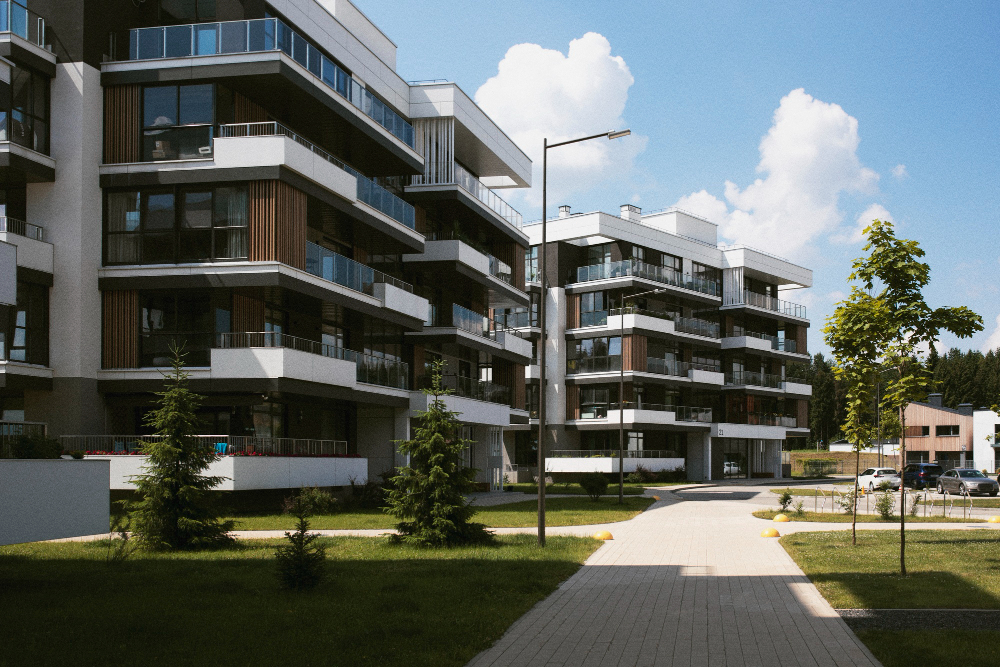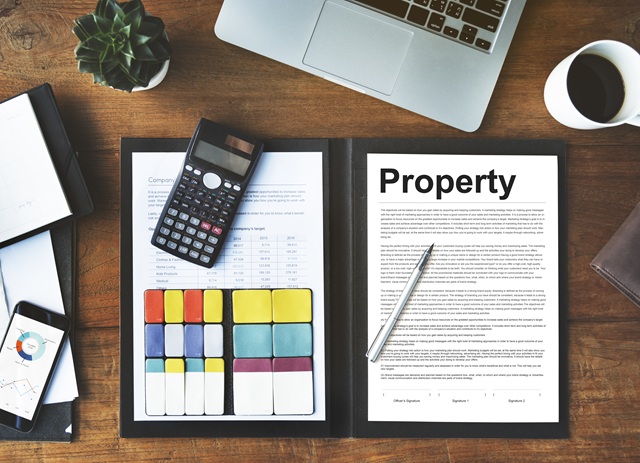
This article is a guide on how to buy a house in Nigeria. It covers the processes, budgeting, steps, and requirements you need to buy a house in Nigeria.
Ultimately, the most valuable investment anybody can assure himself in this life is getting a good house to stay in. Getting a good house is, in fact, more than a mere desire or want, it is fuelled by the necessity for human survival as it provides security and fosters a sense of stability for both individual and family life.
If you ask anyone about the meaning of a house, you will hear the most common answer: “a house is a place where you live or inhabit”.
Though this is true, it is highly important to not just view a house as just a structure where you live in or sleep in at night, it is a special place which is filled with a lot of memories and a starting point for all individuals to build and foster lifelong relationships.
Additionally, from the view of financial experts, ownership of a house is a very reliable and excellent financial investment that can serve as a long-term asset, appreciating in monetary value over time. This proves that owning a house provides a sense of financial stability and security.
However, when we critically analyse it in our God’s own country, Nigeria, buying or building your house can prove to be a milestone, especially in the thriving real estate market of the Nigerian region. In recent times, the Nigerian property industry, particularly the real estate, has experienced significant advancements and growth.
Though this has been majorly attributed to the ever-increasing population rates, coupled with the increasing urbanization of most regional parts of the country, has contributed to the large demand for housing. This has consequently pushed the growth of the industry, thereby increasing a whole lot of housing options, namely villas, apartments, and even townhouse,s for the populace.
This current time and age we now find ourselves, it is a very exciting process to buy a house in Nigeria, especially within the vibrant major cities of Lagos, Port Harcourt, and Abuja. So, whether you are an investor who wants to delve into the Nigerian real estate market or just a first-time house owner, it’s crucial to understand the whole process of purchasing your house in Nigeria. This will help your house-buying journey to be the least stressful and overwhelming it can be.
Here, we have a well-written article that will serve as a detailed guide to aid the process of purchasing your first home in Nigeria by highlighting the crucial steps to take.
How to buy a house in Nigeria – Steps and requirements to consider before buying your first house.
Purchasing any property is no easy task, more so being a house which will require you to put in a lot of work. Ranging from conducting the necessary research to the eventual purchase of the house, there is a whole lot of steps to take to actualize one’s dream of securing the ultimate asset.
Listed below are the steps;
1. Financial budgeting
Financial budgeting is a major factor to note when thinking about how to buy a house in Nigeria. Before one delves into any market, especially the property and real estate type, it is very important to establish a very realistic and clear-cut budget. One should carefully scrutinize and analyze their finances, check out their income earnings, and evaluate them to check if it’s financially possible to afford to own a house without risks of incurring debts or maxing out their paychecks.
This understanding of one’s financial capability is very essential as it will be a guiding yardstick throughout the whole house-buying process. Knowing one’s financial standing will help prevent overextending one’s finances and will help prevent the mistake of straining one’s finances to afford houses that are not budget-friendly.
Financial factors to consider when budgeting:
1. Personal Savings: This covers the total amount of money that you have set aside and saved for any future projects.
2. Loans: Many financial institutions, like banks, offer loans, mortgages, which can be obtained by potential house owners who might need financial assistance.
3. Additional costs: When drafting any budget, it is important to always keep in mind that one has to factor in certain additional costs such as property maintenance fees, agent commission, legal fees, and even in some cases, house taxes.
2. Picking your ideal location
This is the next step to consider when landing your desired house. This crucial requirement is fueled by different factors depending on the homeowner’s lifestyle, infrastructure, and required basic amenities. Other factors that can influence one’s choice of location also include proximity to schools, marketplace, hospitals, shopping centers, and the like.
For this reason, it is important to research various neighborhoods and regions to pick the ideal location that best suits your needs and requirements. The preferred location should align with your set budget, lifestyle preferences while providing maximum security.
In Nigeria, the best locations for individuals to buy houses are the major cities in Lagos, like Lekki, Ikeja, Victoria, and co. Other prominent cities in the regions of Abuja and Port Harcourt also offer good housing options.
It should be noted that each area in Nigeria offers different living experiences due to the differences in price, infrastructure, amenities, transport options and future development plans. Hence, it is important to view each area demographics which have been previously highlighted, to choose the best location that satisfies your needs.
3. Conduct adequate research
Now, with a clear grasp of your budget and location idea, the next step is to promptly begin researching the availability of houses in your desired location.
To do this, a common method can be reading newspapers and publications, by viewing real estate websites which display available properties and houses. One can also physically visit real estate agencies or go for consultations with property agents to get information about house listings. One should specify their options based on the type of house one has in mind, be it an apartment, a semi-detached house, or a detached house.
After making the necessary enquiries, it is very important to draft a list of the houses you’ve developed an interest in, keep track of their availability, and how long they have been on the market. Research different neighbourhoods within the desired location, analysing the varying price tags of their properties.
Keeping track of different modifications in the various prices will provide you with an insight into the current housing trends and market prices of such a location.
Key features to note during market research
1. When checking out these properties, it is essential to conduct a thorough inspection of the amenities, as well as the overall condition of the house.
2. It is usually best to inspect the working condition of key features in the home, such as plumbing, electrical systems, and roofing, especially in cases of older or previously owned houses.
3. In some cases, it is best to check out the developer or house agent’s reputation and track record. This might help to minimize the risks of fraud or extortion by the management.
4. Services of sound lawyers should be secured to cross-check the legalities of the house to prevent any underlying difficulty or the future occurrence of such.
5. Obtaining the services of a qualified realtor or estate agent can help provide sound advice to help one make the best choice of a house that will meet their needs and requirements.
4. Proper house inspection
The next step after shortlisting the potential houses is to conduct a proper inspection. This step is very important as during the market tour, there were a lot of houses to see. It might be difficult to recall everything about all the houses, and hence the necessity of the inspection.
During inspection of the house with the estate/house agent, it is important to ensure that the desired house meets the checklist of needs and requirements of the owner. One should ensure that the inspection is thorough and every part of the house is duly assessed for any underlying faults.
The contingency of this step is that in the course of inspection, any hidden fault will be exposed, protecting you from buying such a house without prior knowledge. If such a fault is very huge or serious, the inspection process will provide an individual with the ability to renegotiate or even withdraw their offer.
Key features to take note of during inspection
1. One should make sure to check for cracks in walls, tiles, floor, and ceilings. This is because most cracks are an important sign of foundational issues.
2. Make sure that the water supply and electrical systems are in excellent condition. Check for signs of faulty wiring, naked wires, and pipe leakages.
3. Check the quality of finishes of furniture, especially cabinets, wardrobes, and even doors and windows. This can help improve future renovation costs.
4. Lastly, a key feature to note is the security of the environment. Check if the house is located in a safe and secure neighborhood. You should additionally enquire from the estate agent about necessary security measures.
5. House Documents verification
After confirming that the house satisfies the requirements, the next agenda before making any commitment should be ensuring that the proposed house possesses a good title and the legal documentation.
Nowadays with we have many rampant issues of property disputes has buttressed the need for legal backing before making any monetary advancements.
Consult with qualified land surveyors to verify the genuineness of the house title deed. Also, ensure that the property is free from any encumbrances or any funny family entitlement issues.
Key documents to be verified include;
1. Certificate of occupancy (C of O): This house document confirms the sole ownership status of the land. This is an important document that is very prerequisite when buying land and houses.
2. Deed of assignment: In the case of secondary house-buying (buying from a previous owner), it is important to ensure that the seller(previous owner) issues this document. This document shows and confirms the land/house ownership status.
3. Land use charge receipts: This indicates the payment of land use charges, a form of land tax to be paid by house owners. Make sure that the tax payments are up to date to prevent future encumbrances.
6. Price negotiation
Once you have landed a property that has passed through verification, inspection stages and meets your preferences, the next step should be to negotiate the price. You can negotiate directly with the seller or via real estate brokers or agents to reach a price that is beneficial to all parties.
However, like most things in Nigeria, property prices can be negotiable, especially if the house in question has been on the market for a while or has some minor faults. In this situation, these conditions can serve as an advantage to the buyer as they can allow for negotiations of a lower price rather than the set price.
Additionally, it is important to factor in additional costs such as legal fees, stamp duties, consultation fees, and other levies when finalizing the total cost in your budget.
7. Closing the sale
After reaching a consensus with the seller on the negotiated price, the next step should be to make a formal offer to the seller by paying up. The payment process should be well documented with the appropriate paperwork and receipts.
Usually, a lawyer or legal professional facilitates this documentation process via a sales agreement. This sales agreement includes important details such as terms of transaction, price, payment method, and the like. A lawyer might be needed to review the document to ensure that there are no errors, scams, or mischievous clauses and ambiguities.
After the agreement is completed, typically, the transfer of ownership commences. The remaining steps being registration of the landed property with the court/registry, paying the necessary dues, and adding the house’s title to one’s name.
8. Taking ownership of the house
After completion of the necessary payments, paperwork, and agreements, the final step should be to seize ownership of your new space.
Ensure to receive all keys, necessary documents, and additional items that might be pre-included in the agreement, such as furniture, appliances, etc.
Make necessary arrangements to move into your new house and furnish it to your taste.
Conclusion
In conclusion, from the above guide, I will assume you now know how to buy a house in Nigeria and the steps and requirements to consider before buying your first house.
Starting from budgeting, the preparation and research to the last step, it is good to remember that following this will help you to find the perfect house that fills your preference and budget perfectly. If you wish to buy a house in Nigeria, now is the best time to get started.
Recommended articles:
7 things you must to stop doing as a real estate agent
Top 10 Real Estate Terms to know when buying your first property.





